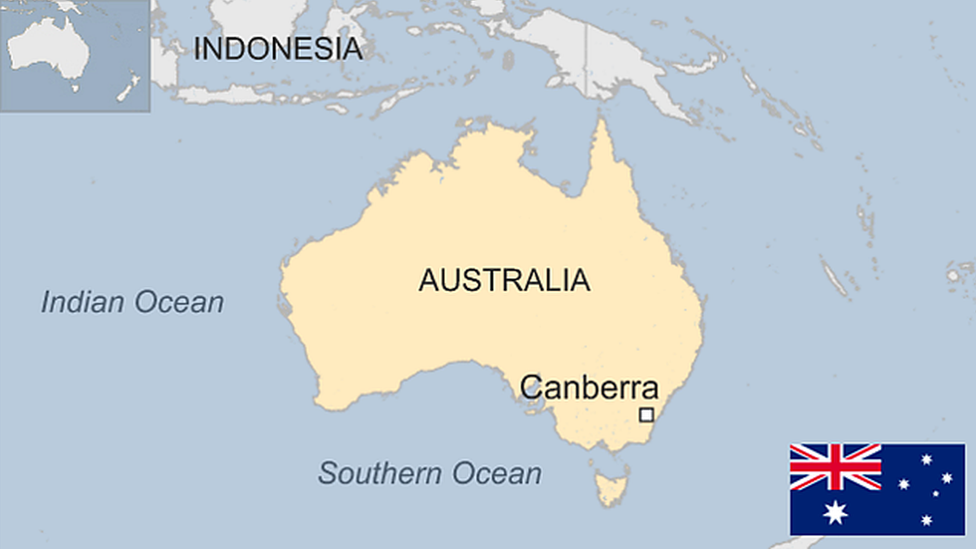'It's OK to be white' bill defeated in Australian Senate
- Published
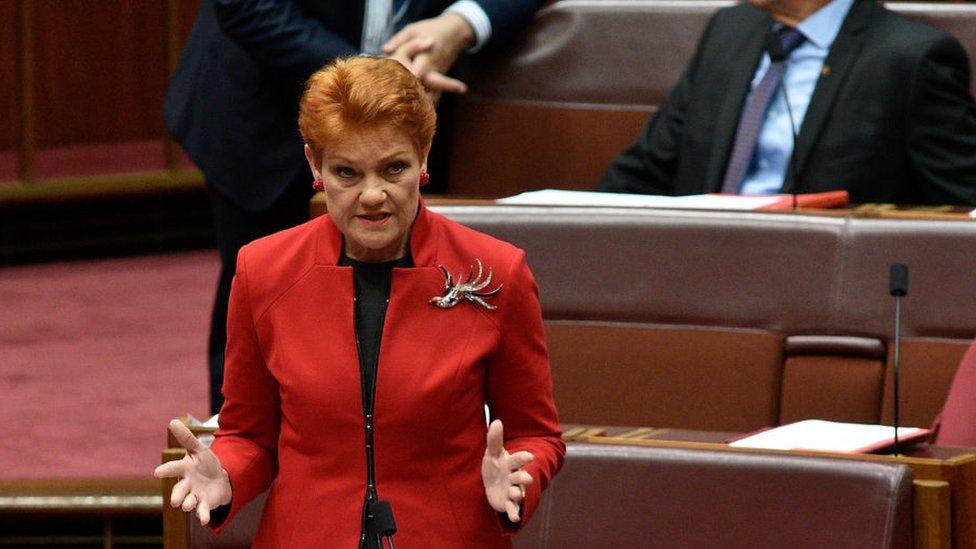
Critics say the motion by Pauline Hanson, pictured in 2017, was a publicity stunt
Australia's Senate has narrowly defeated a motion condemning "anti-white racism", by just three votes.
Pauline Hanson, the leader of Australia's far-right One Nation party, wanted backing for her motion which stated "it is OK to be white".
It also spoke of the "deplorable rise of anti-white racism and attacks on Western civilisation".
Critics have dismissed it as another stunt by Ms Hanson, who last year hit the headlines for wearing a burka.
Yet a number of ruling party politicians backed the motion.
Among the 23 people who voted in favour was Australia's first parliamentarian of black African descent, Kenyan-born Lucy Gichuhi of the governing coalition.
Others in government who supported the motion were the Deputy Senate Leader and Trade Minister Simon Birmingham, Indigenous Affairs Minister Nigel Scullion and Deputy National leader Bridget McKenzie.
Speaking ahead of the vote, Ms Hanson said "people have a right to be proud of their cultural background, whether they are black, white or brindle".
"If we cannot agree on this, I think it's safe to say anti-white racism is well and truly rife in our society," she added.
One of those who opposed the bill, Justice Party Senator Derryn Hinch, called it a "headline-grabbing stunt".
He said Ms Hanson was "in a race" with another of her colleagues "to the bottom of the sewer" by seeing "who can be the biggest, the loudest, racist bigot".
Far-right trolls
The phrase "it's OK to be white" has been popularised online among far-right groups.
Its inclusion in the motion is also seen as a nod to the Canadian activist Lauren Southern, who wore a T-shirt emblazoned with the phrase when she visited Australia earlier this year.
Allow Instagram content?
This article contains content provided by Instagram. We ask for your permission before anything is loaded, as they may be using cookies and other technologies. You may want to read Meta’s Instagram cookie policy, external and privacy policy, external before accepting. To view this content choose ‘accept and continue’.
In March, Ms Southern was refused entry to the UK on the grounds that her actions "present a threat to the fundamental interests of society".
- Published11 September 2018
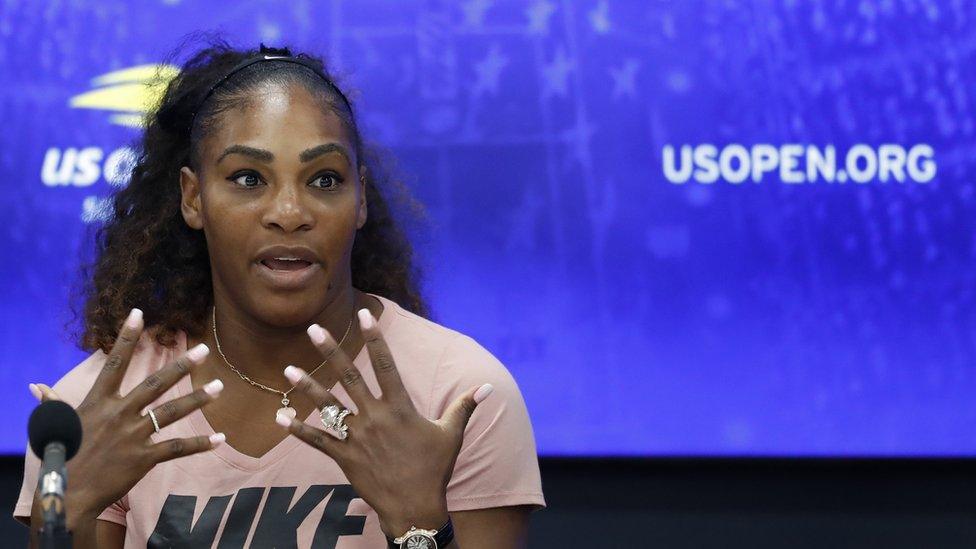
- Published17 August 2017
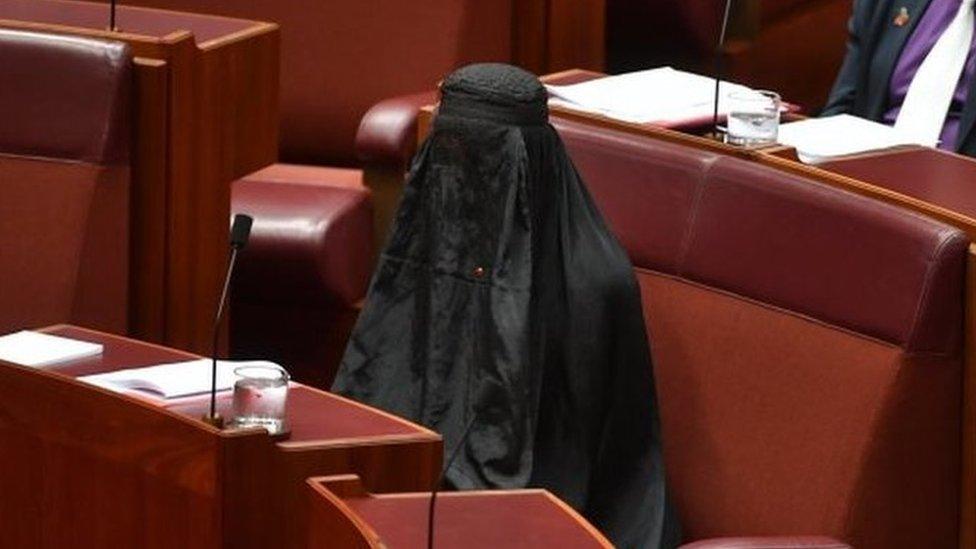
- Published22 June 2018
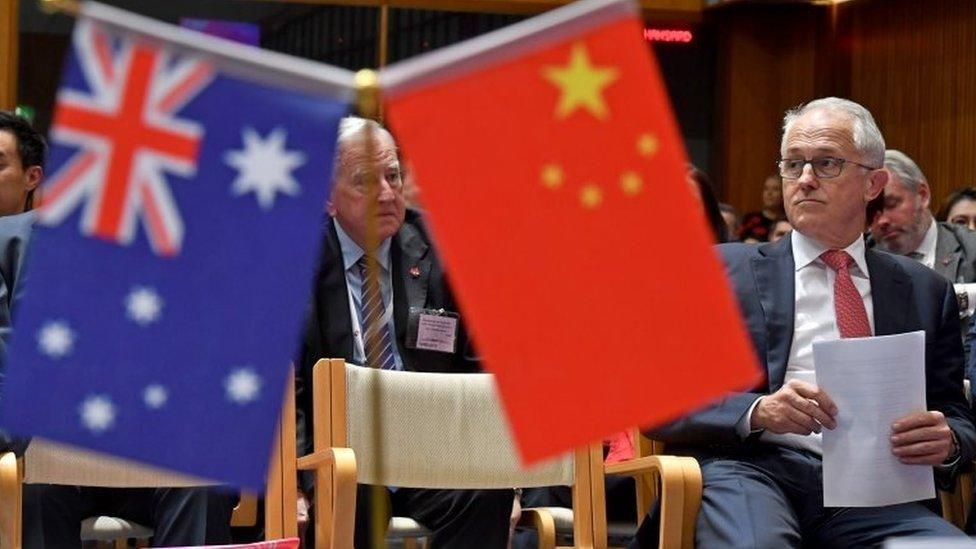
- Published14 April 2023
